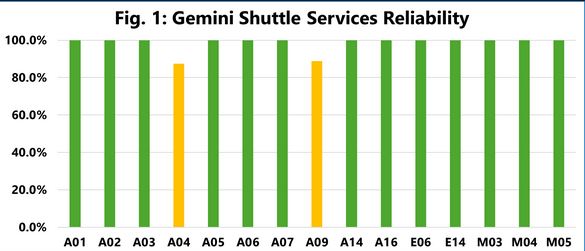 The Gemini Cooperation’s shuttle services achieved a schedule reliability of 98.4% in February 2025, according to Sea-Intelligence.
The Gemini Cooperation’s shuttle services achieved a schedule reliability of 98.4% in February 2025, according to Sea-Intelligence.
Unlike traditional container shipping alliances focused solely on mainliner deep-sea services, Gemini Cooperation incorporates a hub-and-spoke model, emphasizing transhipment via shuttle services. The network, when fully implemented, will include 28 shuttle services.
In February 2025, 15 shuttle services were operational: 10 in Asia, 2 in Europe, and 3 in the Indian Subcontinent/Middle East. All but two services, A04 and A09 in Asia, recorded 100% schedule reliability.
Several factors contextualize this performance. “The true performance test of the new alliances (and MSC’s new network) will be when they are fully rolled out in July 2025,” noted the report.
The initial rollout phase in February involved fewer vessels, making it less challenging than later stages when multiple vessels will phase in simultaneously.
Additionally, only 15 of the planned 28 shuttle services were active, with limited European shuttle operations.
Furthermore, no mainliner services completed full origin-to-destination transits, such as from Asia to Europe, as these require over a month.
“The Gemini shuttles have thus ‘only’ been feeding the mainliner services in February, and are yet to receive containers from mainliners, to be shipped to final discharge port,” the report stated.
Gemini Cooperation is a long-term operational partnership between Hapag-Lloyd AG and Maersk A/S, launched on February 1, 2025. The collaboration aims to create a global ocean freight network covering seven major trade routes, utilizing a hub-and-spoke model with approximately 340 vessels and a capacity of 3.7 million TEU. The network includes 29 mainliner services and 28 shuttle services, designed to enhance schedule reliability and connectivity while supporting decarbonization goals.



